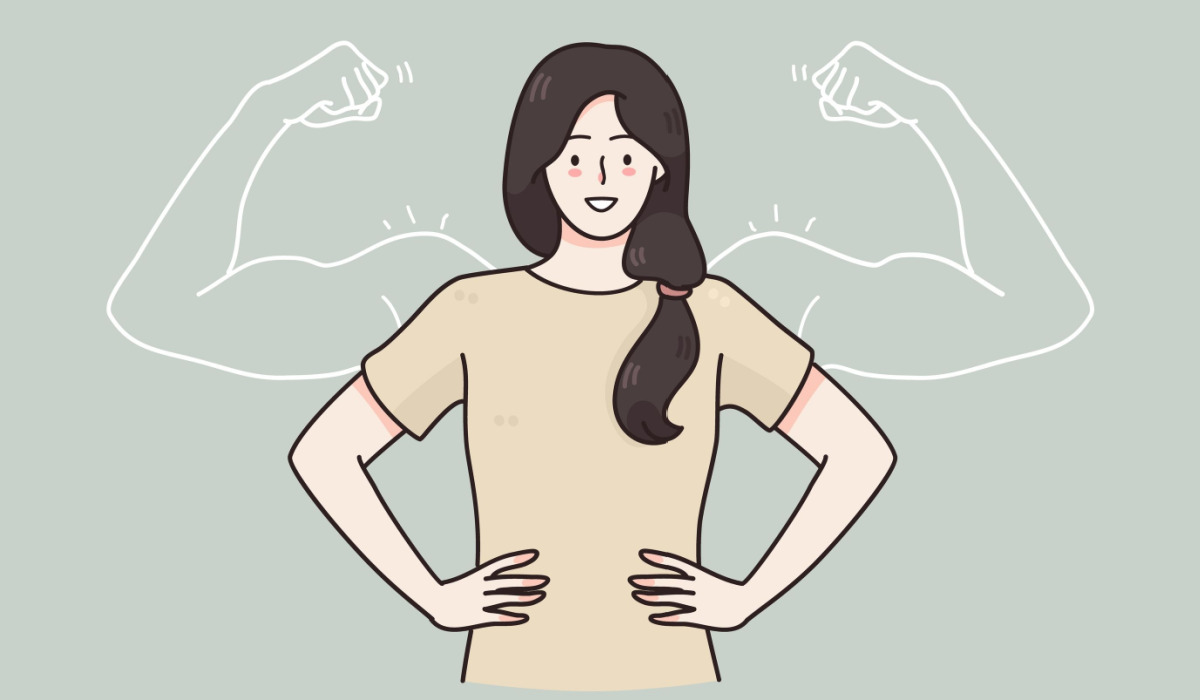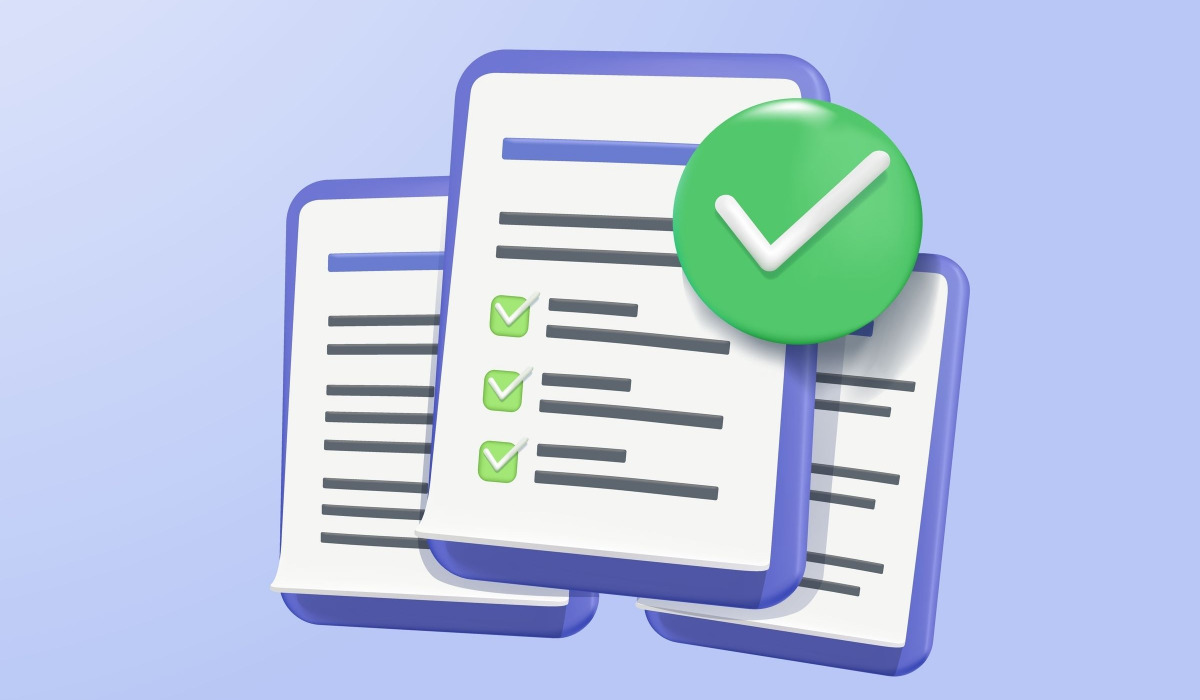Looking to build confidence? You’ve come to the right place. Whether you’re looking to overcome low confidence for an overall sense of well-being or for something specific, like acing a job interview, there are a variety of ways to boost your confidence.
Read on for science-backed strategies to help you overcome self-confidence issues and cultivate a strong sense of self-assurance.
The Effects of Confidence
The effects of confidence on job performance and competency can be difficult to measure because, surprise, people with higher-self esteem tend to rate their attractiveness, likability, and job performance higher than those with lower-self esteem. Yet, lab studies have failed to show that high-self esteem causes better task performance.
That said, there are some correlative benefits that make confidence a worthwhile pursuit. Confidence and high-self esteem have a strong relation to happiness, and happiness can help ward off and prevent burnout. So while confidence can’t directly prevent burnout, it can be a useful tool in maintaining healthy work-related energy levels.
Confidence can also boost your initiative. People with higher self-esteem are more likely to speak up in groups and to contradict the group’s approach. This can be beneficial when it’s necessary to bring another perspective that the group has not yet considered, but it’s important to consider that the willingness to contradict the group doesn’t necessarily mean you’re right.
This is related to another side effect of confidence: People with higher confidence levels are also more prone to confirmation bias, the tendency to accept new information that confirms already-held beliefs and reject new information that contradicts those beliefs. It makes sense that people who feel confident would also be confident in their beliefs.
If you’re committed to growing and coming from an informed place of confidence, rather than confidence for confidence’s sake, then this confirmation bias is unlikely to limit your growth because you’re doing the work of continuing to educate yourself (and continuing to learn, in turn, is one practice that will build confidence).
A Note on Imposter Syndrome
Imposter syndrome describes the feeling of “not being good enough” in a given work environment. The term was coined in 1978 when women and People of Color entered the workplace to find very real hostilities. Over the years women especially have been said to suffer from imposter syndrome at higher rates. Recently, some have also pointed to the fact that imposter syndrome may actually reflect a recognition of unequal treatment in the workplace. This is to say that “changing your mindset” may not be the biggest challenge… but, since it’s something that you can more easily control, we’re going to give you the tools for how to do that.
Imposter syndrome also took a pretty common feeling—anxiety and worry about performance—and pathologized it. Which is to say, almost everybody feels it at some time or the other. Knowing that this is a pretty common experience may help you move through it faster.
And if you’re struggling with low confidence, there are many ways to help you overcome insecurity and feel more comfortable.
Don’t Skip: Dr. Adam Bandelli’s Five Cs of Building Trust
How to Build Confidence
Social science has given us at least 8 data-backed ways to build confidence. Whether you’re looking to find success—or to just be able to enjoy it more when you achieve it—these tips will have you feeling more self-assured in no time.
1. Embrace a Confidence-Inspiring Wardrobe
How you dress might affect your self-confidence and your job performance. In a study published in Social Psychological and Personality Science, participants in casual clothing were outperformed by those who wore formal clothing when performing a series of tasks. This was especially true when it came to creative and organizational problems. Not only were the formally dressed participants more confident but they also demonstrated more focus.
If you’re having a hard time getting your creative juices flowing or you’re facing a high-pressure situation at work, try dressing up for the occasion. You’ll likely experience a confidence boost and you may even find that you’re able to complete the task at hand more easily.
2. Set Some Goals
Goal-setting can lead to higher self-esteem, confidence, autonomy, and increased motivation, according to a 2006 study. Without goals, we can feel directionless and at times listless. Setting some goals can help guide you towards a specific path with specific, planned outcomes. Not only does this have the benefit of guiding your work, but it can also be easier to identify your successes, which in turn can help increase overall confidence.
3. Take Action
According to psychotherapist Amy Morin, the biggest mistake people make is to expect confidence to come first. She suggests that many of the people she works with would be better served by taking action first and seeing if the confidence follows. If you’re suffering from low confidence, it can be especially challenging to take a risk—but if you’re serious about overcoming these negative feelings, then do something. Try your hand at painting. Start the business or side hustle you’ve been dreaming of for years. Do the thing you think you would do if you felt confident. You might be surprised how confident it makes you feel.
So… what would you do if you felt more confident? Go do it. If you don’t know how to do it, find a class. Virtual learning has made developing new skills and proficiencies easier than ever. Many entrepreneurs have taken our Start Your Side Hustle mini-course to learn the ropes. The free course was just what they needed to build the knowledge base to help them start their business with confidence. Sometimes, it doesn’t take a lot. It just takes a step. Take the step.
4. Think Positive
Positive thinking can help you build greater self-confidence. The Mayo Clinic recommends these strategies for cultivating positive thoughts:
- Practice hopeful statements.
- Forgive yourself.
- Avoid statements that use the word “should” or “must.”
- Consider what you’ve learned.
- Rename negative thoughts.
- Encourage yourself (You’re working hard. Give yourself a little credit!)
- Look for the silver linings.
Some of us have a tendency toward negative thinking because it “feels true” but the truth is that it’s often a skewed version of reality. Often a negative thought can just be a limiting belief in disguise. Make a concerted effort to reframe negative thoughts in a positive way. You might be surprised by the confidence that follows.
5. Try Meditation
Meditation, the practice of quieting the mind, has been shown to ease anxiety, help manage your inner critic, and promote overall well-being. It can also help with building confidence. A study at Stanford found that participants who engaged in meditation by directing their attention to their senses in various activities (lying down, breathing, walking) experienced a reduction in anxiety. They also tended to think of themselves more positively.
It’s never been easier to start a meditation practice. Apps like Headspace and Calm can help you retrain your brain through daily meditation. You can start with shorter meditations and work your way up. There are meditations specifically geared toward different situations in life, so whether you want to overcome shyness, social anxiety, fear, or if you just want help being a bit more present, there’s likely a meditation for that.
6. Change Your Posture
The way you hold your body may affect your confidence. While power postures are one of the more controversial topics in confidence-related behavioral science, there is continued evidence that your body posture may contribute to the level of confidence you feel.
So what kind of postures make you feel more confident? Expansive postures, those where you allow your body to take up space. Stand with your feet on the ground in an open, wide stance. Roll your shoulders back and allow your arms to remain loose, instead of crossing them. Keep your hands out of your pockets. Make eye contact.
You may have noticed that many of these confidence-related poses are primally vulnerable. In a very physical sense, the front of our bodies is where we are most vulnerable. There’s a reason Brené Brown, renowned vulnerability expert, often repeats the words. “Strong back, soft front, wild heart.” Confidence and vulnerability have a connection here, in that vulnerability is necessary for confidence. Confidence, in turn, can also make you more comfortable with vulnerability.
7. Invest in Your Relationships
Have you ever noticed that people who have a support network of strong relationships tend to exhibit more confidence? Well, that’s because they are. It turns out that the reverse is also true: strong relationships make you more confident and confidence can lead to stronger relationships.
After analyzing more than two decades of research, the American Psychological Association found that positive relationships can contribute to confidence, and vice versa. According to the authors of the study, “The reciprocal link between self-esteem and social relationships implies that the effects of a positive feedback loop accumulate over time and could be substantial as people go through life.”
So if you’ve been struggling with confidence recently, you might benefit from taking some time to invest in the other relationships in your life. This is part of the ever-important work-life balance. Sometimes, the answer to feeling more confident at work is to spend your energy investing in your personal relationships.
8. Get a Business Coach
Do you remember a time as a kid when a teacher, instructor, tutor, or coach helped you overcome a challenge?
If yes, it’s because they had the experience and understanding of who you are to give you the confidence to move forward. So, if we surrounded ourselves as adolescents with people invested in our success, why don’t we as adults?
80% of people who have business coaches showed increased self-confidence. That’s why having a business coach is becoming a norm for executives and founders.
A business coach will give you an external perspective on the challenges you face as a founder and encourage you to make healthy decisions for yourself and your business.
Instead of feeling isolated, you’ll feel like you have a trusted mentor in your corner.
Keep Learning: 5 Reasons Why You Need a Business Coach
It Gets Easier
Some of the ways you can build confidence have reinforcing feedback loops. Positive affirmations can help you feel more overall confidence, which in turn makes it easier to find positive thoughts. Strong relationships build confidence, which builds strong relationships.
The good news is that as you begin your confidence-building practice, it will get easier. Even if you don’t see seismic gains at the beginning, keep going. True self-confidence is built over time through practice.
If you’re looking to learn from the best to build your confidence, explore foundr+ where you’ll have access to world-renowned entrepreneurs who’ve been in your shoes.




















